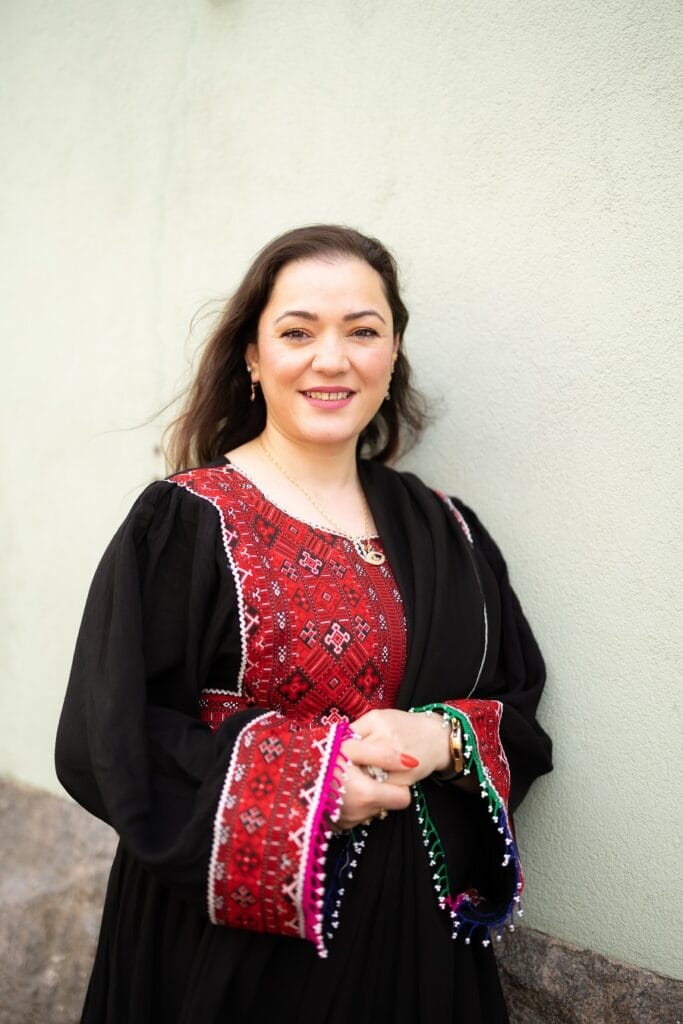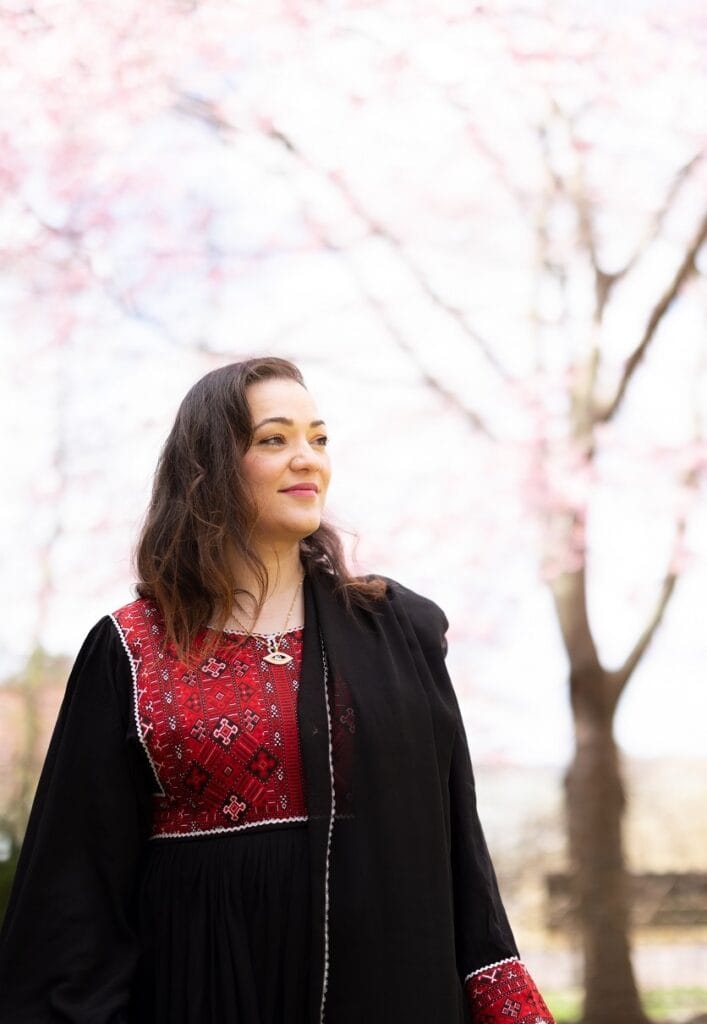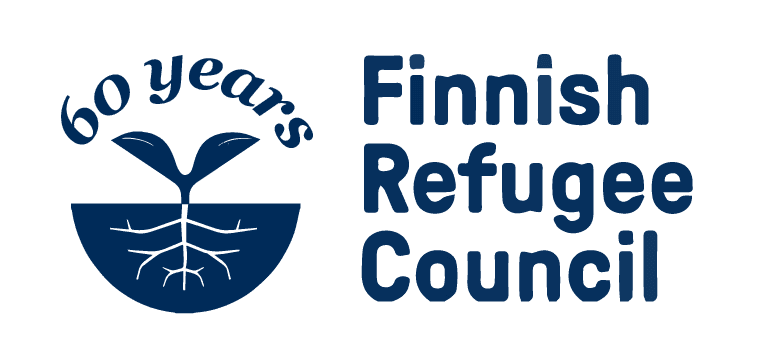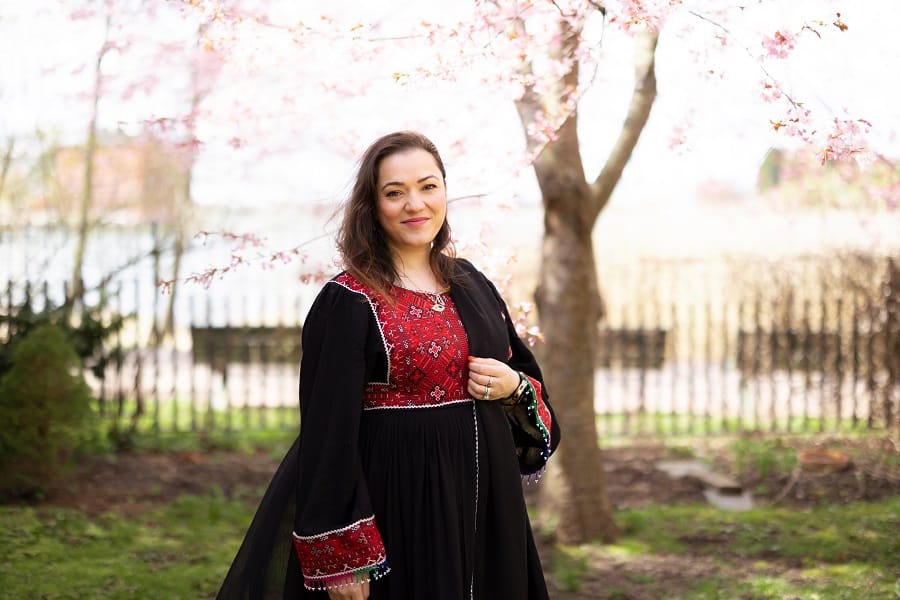© Henna Västi
Finnish Refugee Council has selected Homaira Qadare, a resident of Tampere, as the Refugee of the Year 2025. The announcement was made on Thursday, June 12, in Helsinki.
Reunited After the Escape
Originally from Afghanistan, Homaira Qadare, the Refugee of the Year 2025, arrived in Finland at the age of 15 in 2003 through family reunification, accompanied by her mother and four brothers. Her father had arrived three years earlier to seek asylum, and the family was finally reunited. “When does the sun set?” was one of the first questions Homaira asked her father during the Finnish summer.
Both of Homaira’s parents were educated, active, and often helped others in times of need. Due to his societal position, her father received death threats and was eventually forced to flee from the Taliban regime that had seized power in Afghanistan. The family did not hear from him for a long time and feared he had died on the way. Because the mother was also receiving threats, the father’s brother helped the family flee in the middle of the night to Pakistan.
“We lived in complete uncertainty. My father didn’t know our situation, and we didn’t know if he was even alive. Eventually, we received a call from Finland, where he had found safety,” Homaira smiles.
HOMAIRA QADARE
Age: 37 years
Country of origin: Afganistan
Residence: Tampere
Family: Husband and 3 children, parents, 1 sister and 4 brothers
Occupation: Early childhood teacher
Arrived to Finland: In 2003 through family reunification
According to Homaira, life in Afghanistan felt like living between two worlds. At home, she could grow up surrounded by a loving family, often gathering with relatives and friends to cook and dance. But outside the home, the reality was different. Daily life was overshadowed by fear, girls had to follow strict rules, and they were never allowed to go anywhere alone. One of her brothers always had to accompany her. The same situation continued in Pakistan.
“Being born as a woman in Afghanistan is extremely difficult. I was lucky that my parents always protected us and eventually brought us to safety in Finland,” Homaira reflects.
Family and Language Skills at the Core of Integration
The family settled in Pirkkala, where her father had already been living for a while. Homaira spent the next seven years there: she attended preparatory education, upper comprehensive school, and high school, eventually graduating as a practical nurse.
“My father witnessed students cheerfully throwing candy during Finland’s traditional high school graduation parade and hoped that his children would one day wear the white student caps too. In the end, we did so, even though at school we were told that immigrants couldn’t make it to high school,” Homaira describes.
Homaira describes her youth in Pirkkala as peaceful, filled with studying, friends, and community events with other Afghan families in the area. She especially appreciated the freedom to dress how she wanted and move around independently.
The family received support from a family worker for integration and daily life, and essential services like KELA and the employment office were nearby. Her father’s earlier experience of living in Finland helped the family navigate everyday life more easily. Although the family occasionally faced discrimination and racism, these experiences didn’t define their lives.
“Of course, racist experiences affected us in different ways, but we didn’t focus on them too much. A loving family has been a tremendous resource, and now all of us have homes and jobs. I’ve learned that if one person says something negative, another often says something kind,” Homaira reflects.
According to Homaira, her family’s multilingual background played a significant role in adapting to a new country. She speaks several languages and found learning Finnish relatively easy as a young girl.
“At first, learning the language required a lot of hard work, and my mother was always there to encourage me. After six months, I decided to stop using English in stores and just speak Finnish until people understood me,” she smiles.
Empowered by Volunteering
Today, Homaira lives in Tampere with her husband and three children. Life is full with work as an early childhood education teacher, volunteer activities, and her children’s hobbies.
“If I’m not at work, I’m volunteering somewhere. If I’m not volunteering, I’m in the kitchen cooking for my kids,” Homaira laughs, describing her everyday life.
For over 10 years, Homaira has supported refugees and immigrants through various projects. She has educated girls on women’s rights and sexual health, advised women on pregnancy and motherhood, and spoken to immigrants about mental health. She has also supported families with children and participated in multidisciplinary teams.
“I gain a lot of strength from volunteer work and helping others. Nothing beats the moment when someone looks you in the eye with a smile and says thank you. No matter where people come from, what their religion or skin color is, I want to help them,” Homaira says.

Through her volunteer work, Homaira has noticed that not all immigrants are aware of the services available to them, or even if they are, they are not always convinced to get involved. In the early days of motherhood, even Homaira wasn’t aware of mother-baby courses. She believes these courses play an important role in family integration and can motivate people to explore the country and its opportunities in a supported way.
“Parents can have serious concerns about their children and struggle with raising them between two cultures. When families actively participate in courses, their understanding and commitment to society grow,” she emphasizes.
A Voice for Afghan Women
Homaira sees her main mission as the Refugee of the Year clearly. She wants to draw attention to the situation of Afghan women. She wants to raise awareness about the situation in Afghanistan, especially the inhumane and increasingly restricted conditions women face there, and to advocate for their rights.

“In Afghanistan, animals have more rights than women. Women are not allowed to speak in public, must remain hidden, and cannot go anywhere without a man’s permission or presence. I want to speak for these women and make sure they are not forgotten among all the world’s other crises,” Homaira says.
Additionally, as Refugee of the Year, Homaira wants to continue supporting families with children and raising awareness among immigrants about available services. She also wants to remind adults and parents of the great responsibility they carry in shaping how children see and experience others and the world.
“When I was a trainee at a kindergarten, the children loved playing with my long hair. But one child always stood further away. When another caregiver tried to bring her closer, the child said: ‘I’d like to, but my parents told me that immigrants kill or poison people.’ That was a striking and eye-opening experience. Children don’t naturally think this way, but they internalise terrible preconceptions from adults. That’s something we, as adults, can influence,” Homaira concludes.
Further information and interview requests:
Marjukka Koskenkorva, Special Advisor on Communications, Finnish Refugee Council
marjukka.koskenkorva@pakolaisapu.fi, tel. 045 133 3803
Afghanistan
Afghanistan has a history of conflict and foreign interference. The Soviet Union invaded the country in 1979, starting a nine-year war during which more than six million people were forced to flee. After the Soviet withdrawal, the civil war continued as various armed factions competed for power. In 1996, the Taliban came to power for the first time. The Taliban restricted the rights of women and girls and created an internationally isolated regime.
In 2001, the US-led coalition overthrew the Taliban, but twenty years of reconstruction and attempts to establish a stable regime failed. When the US withdrew from the country in 2021, the Taliban resumed power. Currently, there are more than 2.6 million Afghan refugees, in addition to more than 3.5 million internally displaced persons in Afghanistan. The situation in Afghanistan has been described as a humanitarian disaster, with women’s rights in particular again under threat.
Sources:
https://www.refworld.org/reference/countryrep/writenet/1996/en/96430
https://www.unhcr.org/us/countries/afghanistan


